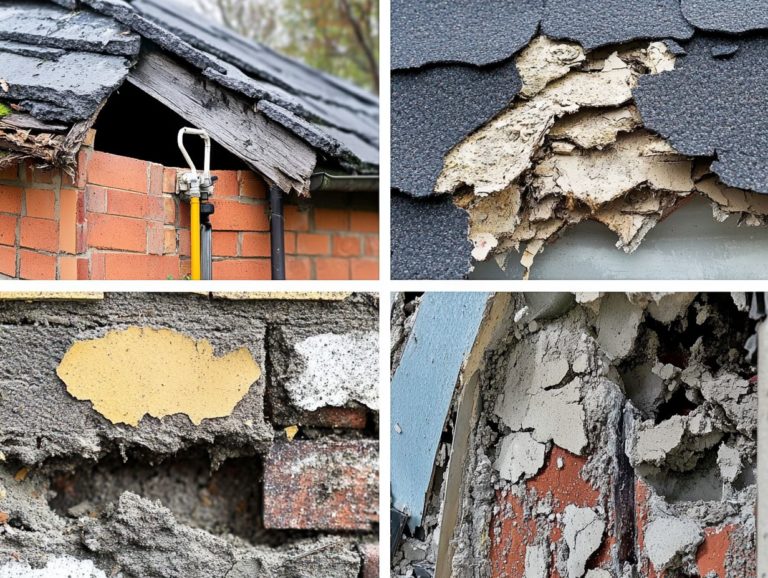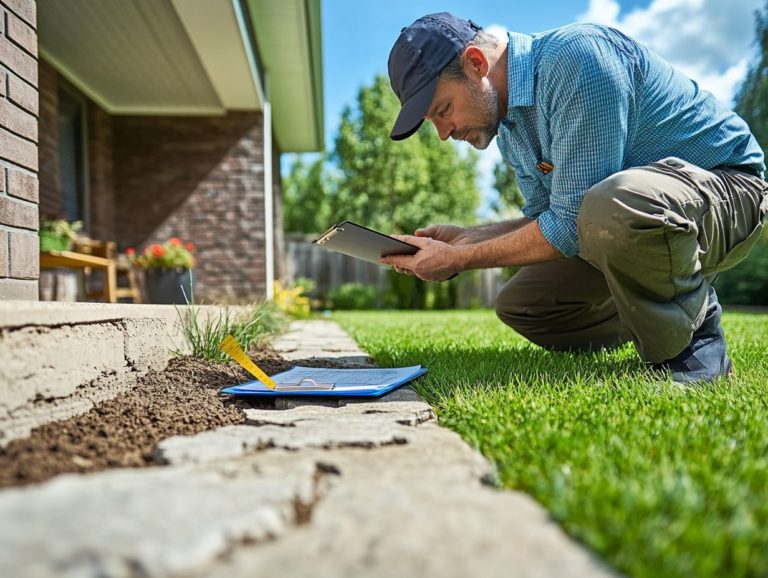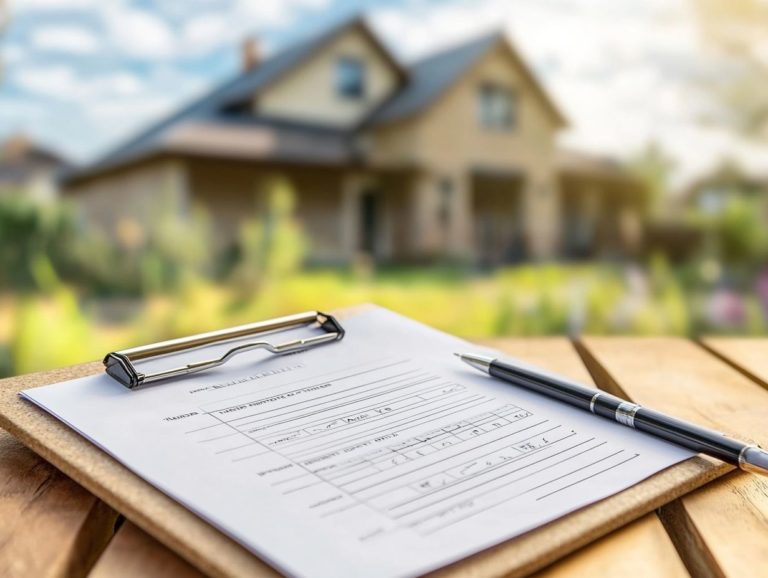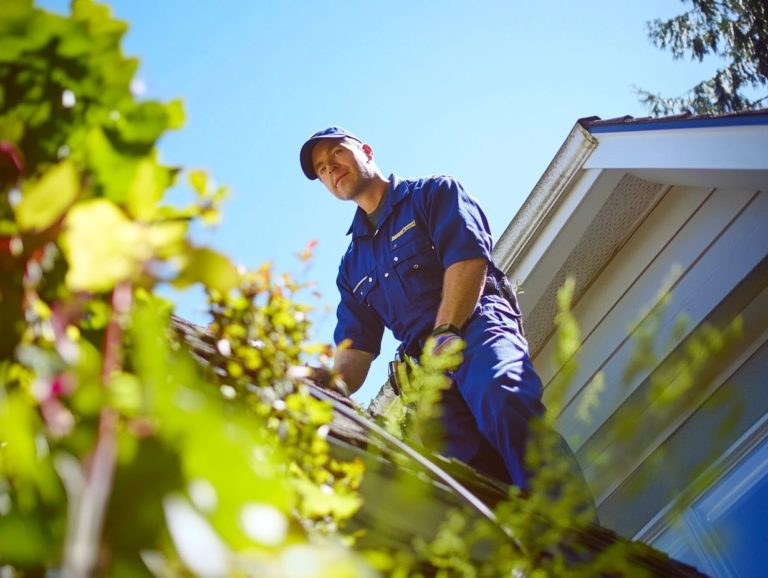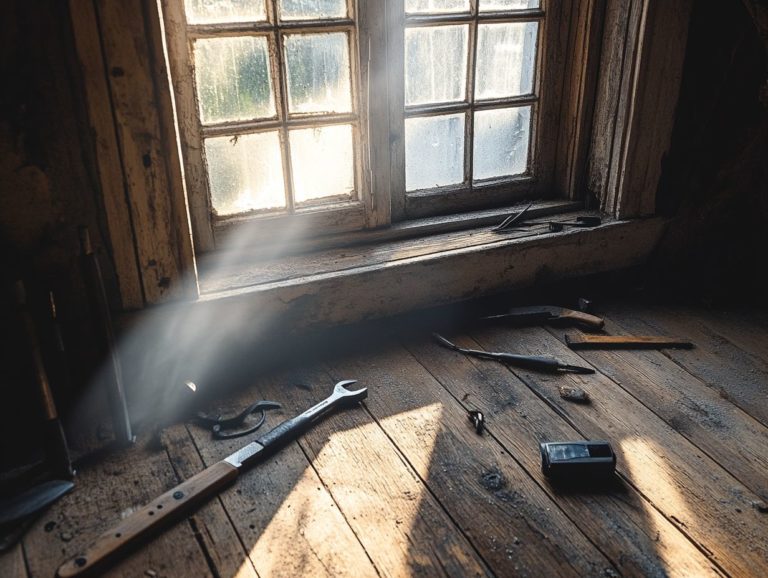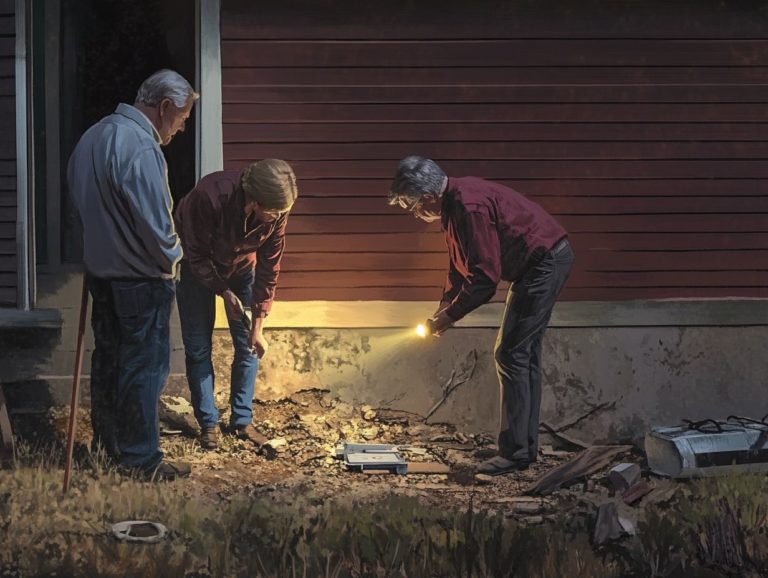The Importance of Home Inspections for New Homeowners
Purchasing a home is one of the most significant investments you ll ever undertake. Ensuring that your new sanctuary is in prime condition is essential.
A home inspection is pivotal in this journey. It allows you to uncover potential issues before they escalate into expensive headaches.
This article delves into what a home inspection encompasses, why it is crucial for new homeowners like yourself, and how to prepare with precision.
From common pitfalls to savvy tips for selecting a qualified inspector, this guide empowers you to make informed decisions for your future home.
Contents
- Key Takeaways:
- What is a Home Inspection?
- Why Home Inspections are Important for New Homeowners
- What to Expect During a Home Inspection
- Common Issues Found in Home Inspections
- How to Choose a Home Inspector
- Tips for Preparing for a Home Inspection
- Frequently Asked Questions
- What is the importance of home inspections for new homeowners?
- When should a home inspection be conducted for new homeowners?
- What does a home inspection cover?
- Can a home inspection save new homeowners money?
- Do new homeowners need to be present for a home inspection?
- How can new homeowners find a reputable home inspector?
Key Takeaways:
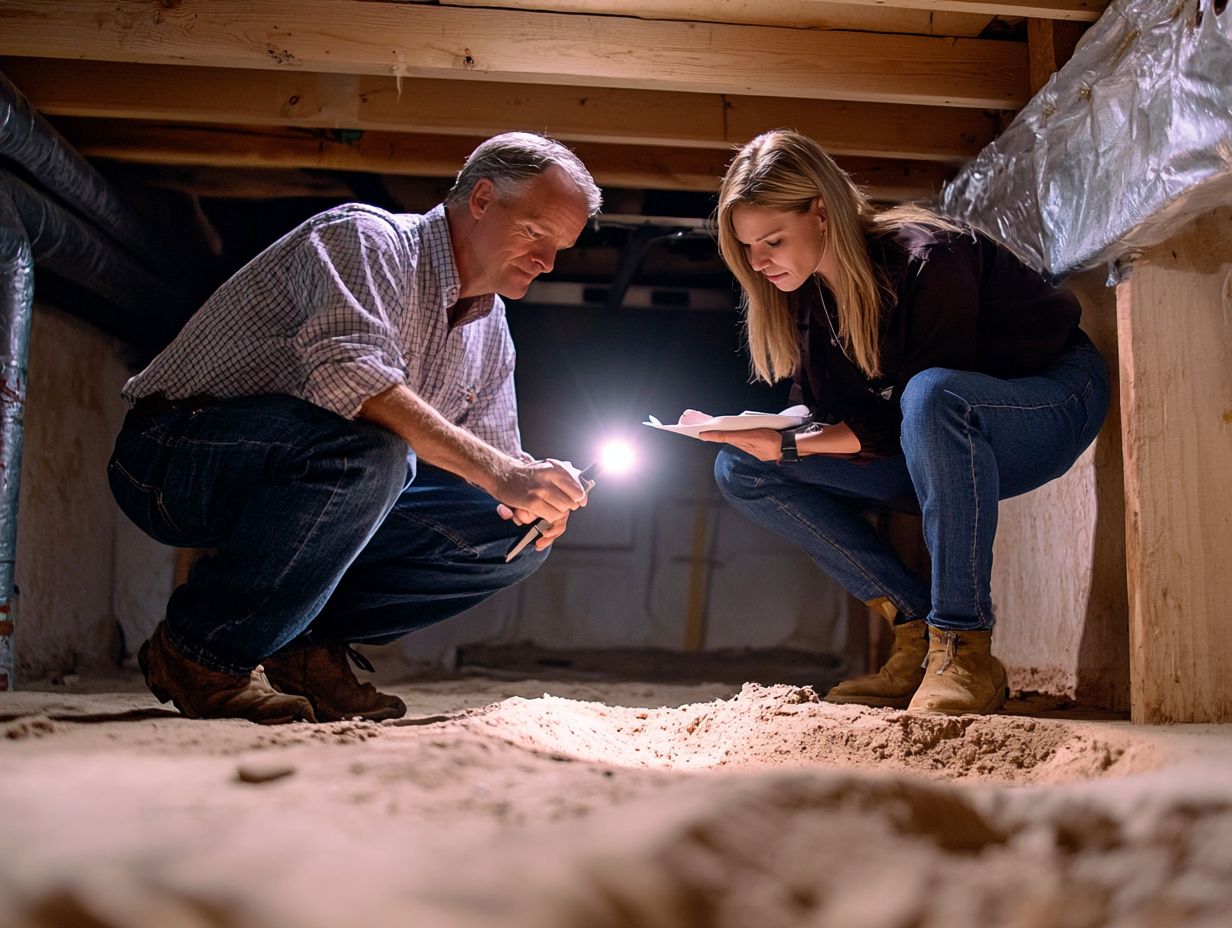
Getting a home inspection is crucial for new homeowners to identify potential risks and costs, as well as avoid future headaches and expenses. During a home inspection, expect to go through a detailed process and timeline, and to learn about common issues that could affect your home’s safety and value. Understanding the importance of a home inspection for buyers can help you make informed decisions. When selecting a home inspector, consider their qualifications and experience, and be sure to ask for references. Prepare your home by fixing any visible issues beforehand to ensure a smoother inspection process.
What is a Home Inspection?
A home inspection is a careful inspection of a residential property performed by a qualified home inspector. Its aim is to assess the condition of the property and uncover any significant issues that can affect your home’s safety and value.
This process typically involves examining critical systems such as HVAC, plumbing, and electrical, alongside a thorough inspection of structural elements like the foundation.
The goal is to give you peace of mind and essential insights needed to negotiate effectively with the seller before you finalize your real estate transaction.
Definition and Purpose
The definition and purpose of a home inspection center around a careful inspection of a property conducted by a professional home inspector. The aim is to uncover any hidden issues that could impact the safety and functionality of your home.
Equipped with this detailed information, you can approach your investment with newfound confidence. This ensures you’re making an informed decision regarding the home s potential challenges and costs.
Ultimately, these insights play a crucial role in granting you peace of mind. They allow you to envision your future in the property with a sense of security.
Why Home Inspections are Important for New Homeowners
Don’t let buyer’s remorse haunt you; a home inspection is your best defense against unexpected costs. For new homeowners, understanding the importance of pre-purchase home inspections is essential to sidestep the pitfalls of buyer’s remorse and unexpected restoration expenses down the line.
Investing in a comprehensive property inspection can reveal costly repairs and potential safety hazards that might remain hidden during initial viewings.
By opting for an inspection, you position yourself with invaluable leverage in negotiations with the seller. This ensures that you make a well-informed decision in today s competitive real estate market.
Potential Risks and Costs of Skipping an Inspection
Skipping a home inspection can open the door to significant risks and financial burdens for you as a buyer. It often leads to that all-too-familiar feeling of buyer’s remorse when major issues come to light after the purchase.
A thorough inspection can prevent unexpected expenses that may cost you thousands. For example, persistent plumbing issues might result in severe water damage or even mold growth, requiring extensive and costly repairs.
Ignoring old electrical wiring can create safety risks, putting both your safety and your property at risk. Long-term maintenance costs can also skyrocket if structural problems, like a compromised foundation, go unnoticed, leading to even greater expenses down the line.
These unintended financial pitfalls underscore the critical importance of being diligent before making such a significant investment in property.
Schedule your home inspection today to safeguard your investment!
What to Expect During a Home Inspection
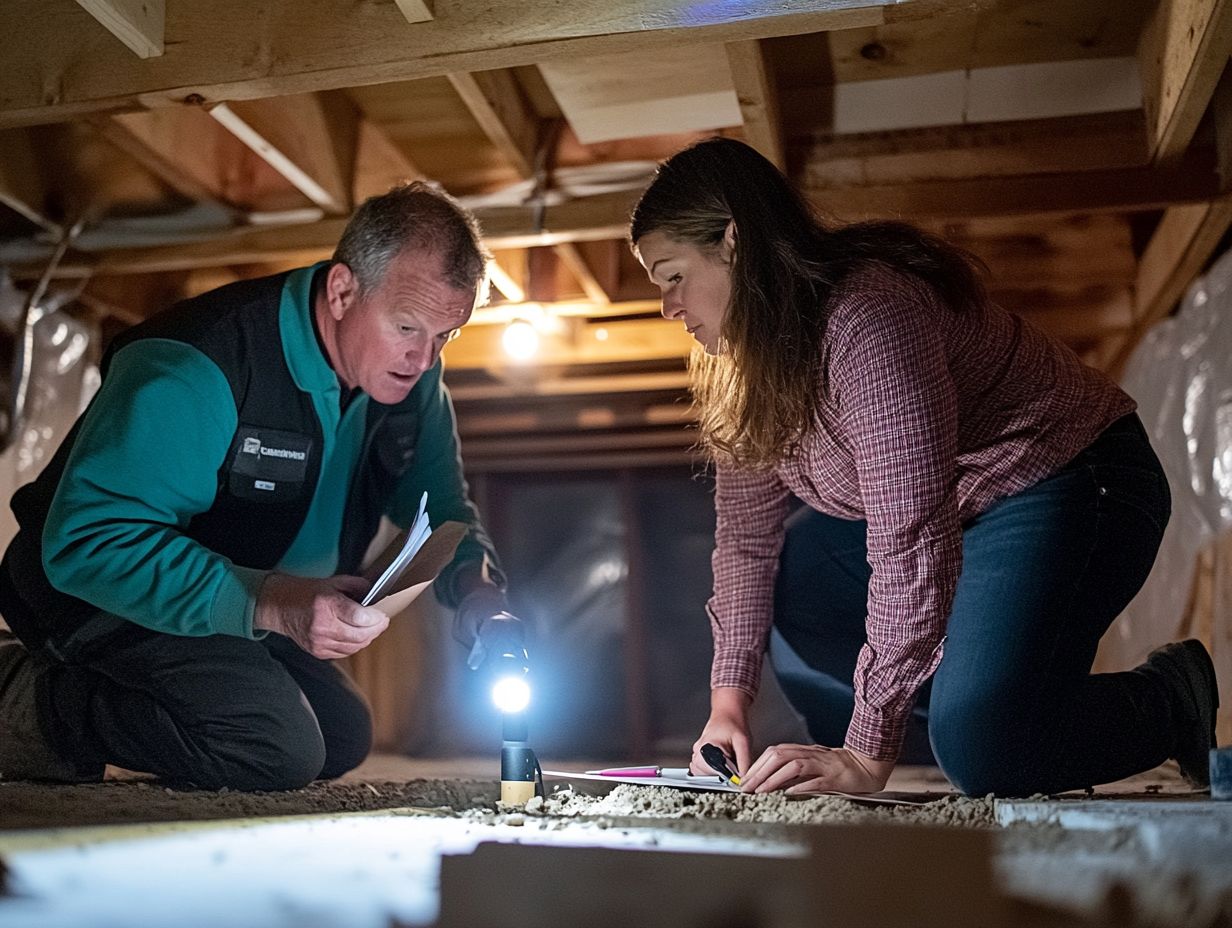
Knowing what to expect during a home inspection can make your home-buying journey smoother and more exciting! It lays the groundwork for the inspection process and the associated timeline.
Typically, a home inspection spans several hours. During this time, a qualified inspector carefully looks over various systems within the home, including heating, ventilation, and air conditioning (HVAC), plumbing, and electrical systems, along with structural elements like the foundation.
After the assessment, you’ll receive a comprehensive inspection report. This report details the inspector’s findings and offers recommendations for addressing any major issues or hidden problems uncovered during the evaluation.
Process and Timeline
Understanding the process and timeline of a home inspection is crucial, as these elements significantly influence your overall experience.
During the inspection, the inspector meticulously assesses every inch of the property, from the roof down to the foundation. This includes a close examination of critical components such as plumbing and electrical systems, ensuring nothing is overlooked.
Once the inspection is complete, the findings are carefully documented in a detailed report, generally delivered within a few days. This report doesn t just point out potential issues; it also ranks their severity, providing you with essential insights into the property s condition.
By understanding each phase of this timeline, you empower yourself to make informed decisions and negotiate repairs with confidence.
Common Issues Found in Home Inspections
During home inspections, you’ll often encounter several common issues that can affect both the value and safety of a property. Understanding the importance of inspections for home safety is crucial for you, as a home buyer, to be aware of these potential problems.
Major concerns like structural issues, pest infestations, and the presence of mold or allergens can result in significant repair costs if they aren t addressed swiftly. By familiarizing yourself with these typical findings, you ll be better equipped to interpret the inspection report and make informed decisions about your future home.
Identifying Potential Problems
Identifying potential problems during a home inspection can save you from unexpected expenses and safety risks down the line. Many issues might not be immediately visible.
Inspectors use a variety of advanced techniques and tools to assess different aspects of the property. For example, thermal imaging cameras reveal hidden moisture issues that could suggest leaks. Moisture meters evaluate dampness in walls and ceilings.
Home inspectors frequently use gas detectors to uncover dangerous leaks or carbon monoxide risks that may elude the untrained eye.
By highlighting common safety concerns, such as faulty wiring or poor ventilation, inspectors equip you to make informed decisions about your potential new home.
How to Choose a Home Inspector
Choosing the right home inspector is an essential step in your home-buying journey. Their qualifications and expertise significantly impact the quality of the inspection results.
Consider several factors, such as the inspector’s certifications from reputable organizations like the American Society of Home Inspectors and their experience in the field.
During National Home Inspection Month, various initiatives underscore the importance of selecting a qualified home inspector. This ensures you receive a thorough inspection and an accurate assessment of potential safety risks and property issues.
Factors to Consider
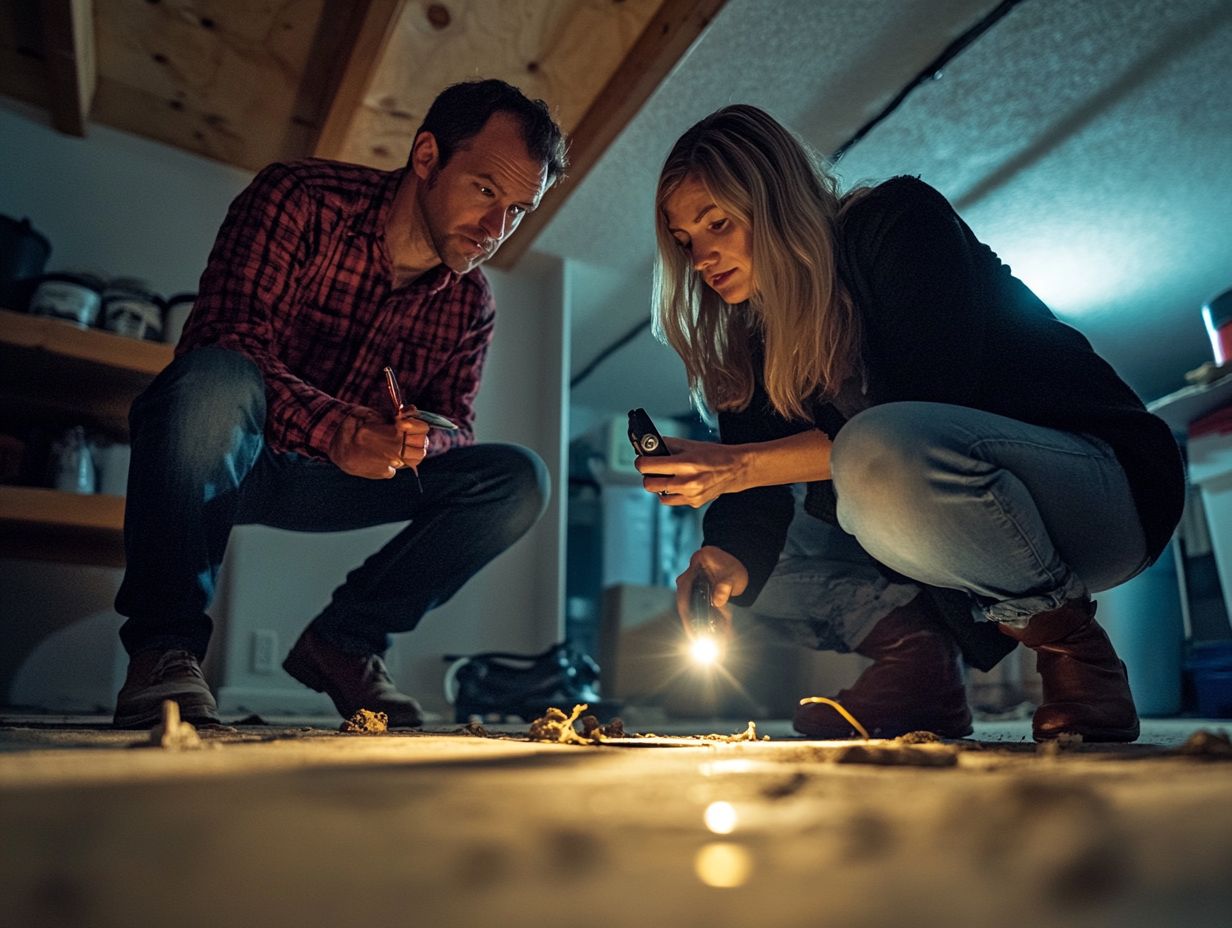
- Check their qualifications and certification; it s crucial that they are licensed and certified in your area.
- Evaluate their communication skills; a great inspector will articulate their findings clearly, empowering you to understand potential issues and their implications.
- Look into past client experiences for invaluable insights. Seek out testimonials or case studies to assess their reliability and professionalism.
Ultimately, making an informed choice will not only streamline your home-buying process but also grant you peace of mind about the investment you re making. Choose wisely now to secure a safe and sound investment for your future!
Tips for Preparing for a Home Inspection
Preparing for a home inspection is crucial as it can greatly influence the outcome and offer valuable insights for you as a homebuyer. Understanding the role of home inspections for first-time buyers will help you adopt a structured approach in this process.
Start by creating a comprehensive checklist to ensure all necessary steps are taken before the inspection. This includes making sure that all areas of the property are accessible and addressing any visible concerns ahead of time.
By educating yourself about the inspection process, you set the stage for a smoother experience and foster better communication with the home inspector. This knowledge empowers you to understand maintenance timelines and anticipate future restoration costs, making your homebuying journey more informed and effective.
Steps to Take Before the Inspection
Before scheduling a home inspection, follow these essential steps to pave the way for a smooth and effective evaluation:
- Prepare an inspection checklist to systematically address key areas of concern.
- Ensure all areas of the home are accessible, including attics, basements, and outdoor structures.
- Don t overlook visible issues like leaky faucets or cracks in the walls; addressing these showcases your responsibility and clarifies potential concerns during the inspection.
This proactive approach underscores your commitment to the process and leads to more informed discussions after the inspection.
Frequently Asked Questions
What is the importance of home inspections for new homeowners?
Home inspections are crucial for new homeowners as they provide a thorough check of the property’s condition. Understanding the importance of home inspections helps identify potential issues or necessary repairs, giving peace of mind and ensuring a sound investment.
When should a home inspection be conducted for new homeowners?
Schedule your inspection right after your offer is accepted for the best outcomes. It should be conducted before the final purchase, typically after an offer has been made but before the closing date. This timing allows for necessary negotiations based on the inspection results.
What does a home inspection cover?
A home inspection covers a thorough examination of the home’s structure, systems, and overall condition. This includes the roof, foundation, electrical and plumbing systems, heating and cooling systems, as well as any visible defects or safety hazards. Additional services may include radon testing or termite inspections.
Can a home inspection save new homeowners money?
Yes, a home inspection can save new homeowners money in the long run. By identifying potential issues upfront, homeowners can negotiate with the seller for repairs or a reduced price. Understanding the importance of a thorough home inspection helps prevent surprise expenses after the purchase.
Do new homeowners need to be present for a home inspection?
Although it is not necessary to be present during a home inspection, it is highly recommended. This allows homeowners to ask questions directly to the inspector and gain a better understanding of the home’s condition while seeing potential issues firsthand.
How can new homeowners find a reputable home inspector?
New homeowners can find a reputable home inspector through recommendations from their real estate agent, friends, or family members. Researching and comparing different inspection companies, reading online reviews, and checking for certifications are also important steps. Understanding the importance of home inspections in real estate can help ensure you always choose a licensed and experienced inspector for the most accurate assessment.
Start your home inspection journey today for a safer tomorrow!

